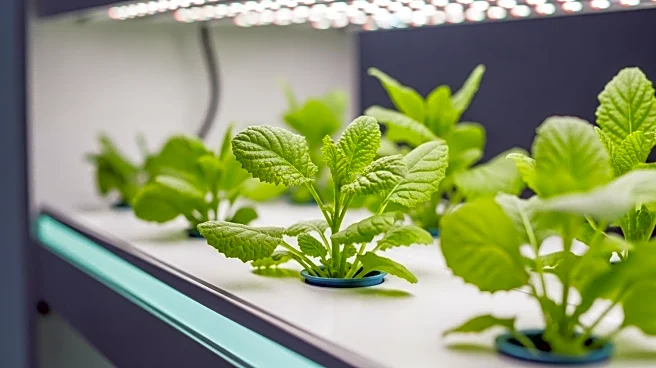What's Happening?
A report by Bain & Company emphasizes the shift in the food industry towards integrating sustainability into core business operations. CEOs are increasingly viewing sustainability not just as a moral obligation but as a strategic component that enhances efficiency, cost management, consumer value, and business resilience. The report outlines how sustainability can drive consumer preference and future-proof portfolios by aligning with evolving expectations. It highlights the importance of sourcing from sustainable agriculture to create climate-resilient supply chains and the need for food companies to adapt to health and regulatory changes.
Why It's Important?
The focus on sustainability is crucial for the food industry as it faces challenges such as declining shareholder returns and increased competition from insurgents and private labels. By embedding sustainability into business practices, companies can improve their resilience against disruptions related to health, climate, and geopolitics. This approach not only meets consumer demands for sustainable products but also positions companies to capitalize on growth opportunities. The report suggests that sustainability can be a profitable venture, with a significant portion of corporate emissions abatable with positive ROI.
What's Next?
Food companies are encouraged to restructure their portfolios and innovate products to align with sustainability trends. This involves reformulating for health expectations, investing in climate-adaptive ingredients, and revitalizing existing categories. The report suggests that companies should focus on emerging investment themes such as food as medicine and values-aligned products. CEOs are advised to adopt a consumer-centric approach that prioritizes solutions over traditional category boundaries, ensuring relevance in a rapidly changing market.









